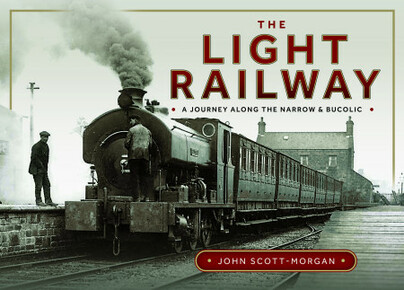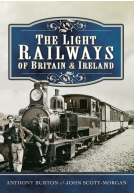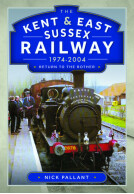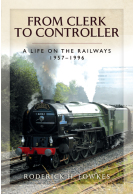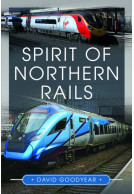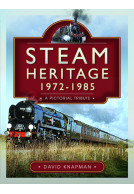The Light Railway (ePub)
A Journey along the Narrow and Bucolic
Imprint: Pen & Sword Transport
File Size: 92.9 MB (.epub)
Illustrations: 200 mono illustrations
ISBN: 9781036106638
Published: 31st January 2025
| Other formats available | Price |
|---|---|
| The Light Railway Hardback Add to Basket | £20.00 |
The light Railways Act 1896 marked the final phase in the development of the traditional railway in Britain, being designed to open up rural areas of Britain that had been bypassed by the larger railway companies.
The promoting and construction of light railways allowed many parts of Britain and Ireland, to have an outlet to the outside world and major cities, which previously they had not enjoyed.
The Light Railway is not designed to be a definitive history, but a pictorial tribute to the brave attempt to develop a rural network of lines to serve some of the areas of the British Isles and Ireland that had sadly been neglected by the large main line companies throughout the initial and later railway development period from 1825 to 1896.
This volume looks at the railways themselves, motive power and infrastructure that made up these small but important lines, promoted by our Victorian and Edwardian ancestors.
"...this is a superb journey supported by 216 black-and-white photographs...This book succeeds in capturing the days of rural light railways that in most cases offered both passenger and goods traffic, and it will be enjoyed by enthusiasts who love the unique budget lines that once played an important part in their localities."
Heritage Railway Magazine
This very impressive book covers photographically virtually all the light railways in the British Isles & Ireland . The author has long been an enthusiast of light railways and railways in general and here he has put together a fine collection of photographs with very informative long captions. This highly recommended book is not only a must have for all light railway fans but also for all railway enthusiasts and modellers.
Peter A. Harding - Branch Line & Light railway Publications.
"In short it is a good book and if you have a liking for railways as well as tramways, then this is worth adding to your collection."
Tramfare Magazine - Tramway and Light Railway Society - March-April 2025
About John Scott-Morgan
John Scott-Morgan has been writing about light railways for forty five years, he has written some of the definitive books on light railway subjects, including about the Colonel Stephens group of lines.
This volume covers the East Kent Railway, a line that was meant to open up the Kent Coal Field, which did not come up to the expectations of the promoters and investors.
John Scott-Morgan has written thirty eight books on railways over the last half a century, covering subjects as diverse as first generation diesel traction and main line subjects, such as the London Transport Red Panniers and Branch Lines in Kent, however its light railways that the author often returns to, as this is one of his main areas of research.
He lives in Woking in Surrey, where he continues with his writing and railway historical studies.







